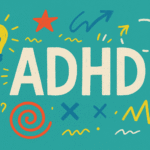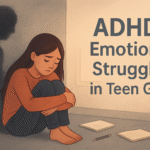The Role of Sleep in Productivity: How Rest Boosts Your Brain
In today’s nonstop traditions of multitasking, deadlines, and content connectivity. Research continues to show that the quality of restful sleep is one of the best ways to increase focus and creativity and maintain productivity. Sleep allows the brain to take rest, recall memories, and regulate emotions. When we talk about sleep and productivity, we are talking about the brain’s ability to recharge, recall emotions, and control emotions, but without it, even the best productivity hack can’t hold up.
For people managing ADHD and Insomnia, the stakes are even higher. Many people turn to treatment with sleep aids like Ambien to maintain their sleep patterns and restore the balance. Exploring the connection between ADHD and brain health and modern sleep therapy reveals how to unlock rest to unlock true sleep and productivity.
How a Good Night’s Sleep Unlocks Productivity
When you sleep, your brain doesn’t turn off. It’s getting busy, strong memories, cleaning the waste, and repairing itself. Poor sleep leads to muddled thinking and difficulty concentrating and solving problems. Quality of rest helps in increasing focus, decision-making, and emotional balance, which regulates two elements: sleep and productivity.
Even studies approve that a single night of bad sleep can cut your mental performance by up to 30%. Imagine trying to power through a big assignment that is very important for you, but your brain feels like it’s crawling on its feet. True productivity isn’t about smart working, and sleep and productivity are the hidden key.
ADHD, Sleep, and Productivity
For many people with ADHD, sleep challenges are common. Tired energy, racing thoughts, and an unbalanced sleep cycle often make it hard to fall asleep. The poor sleep and restless nights make ADHD symptoms like mood swings worse in today’s nonstop traditions of multitasking, deadlines, and content connectivity. Research continues to show that the quality of restful sleep is one of the best ways to increase focus and creativity and maintain productivity. Sleep allows the brain to take rest, recall memories, and regulate emotions. When we talk about sleep and productivity, we are talking about the brain’s ability to recharge, recall emotions, and control emotions, but without it, even the best productivity hack can’t hold up.
For people managing ADHD and Insomnia that the stakes are even higher. Many people turn to treatment with sleep aids like Ambien to maintain their sleep patterns and restore the balance. Exploring the connection between ADHD and brain health and modern sleep therapy reveals how to unlock rest to unlock true productivity.
Understanding Balancing ADHD, Sleep, and Productivity
Ambien can help to balance the long-term productivity requirements of a combination of health routines and medical support. Here are the strategies that work.
Maintain Sleep Schedule: Maintain your body’s internal clock by going to bed and waking up at the same time.
Use Ambien Carefully: Under medical guidance, Ambien can help to manage sleep patterns, and never share your medication with others.
Adopt soothing evening habits: Reading, journaling, or meditating can help the brain rest.
Protect your rest time: Understand that sleep is not lost time; it’s an investment in higher productivity.
How Ambien Plays a Role in Sleep and Productivity
Ambien is a prescription sleep medication that is used to treat insomnia, which helps people fall asleep faster and stay asleep longer. Falling asleep faster and staying asleep longer.For those who lie awake at night. Ambien is a short-term medication.
When sleep improves, everything else does: mood swings, focus, and motivation increase. People who manage ADHD may find that a well-rested brain handles tasks more effectively.
Ambien isn’t a magic fix. It’s only used under medical guidance and isn’t a replacement for a healthy sleep routine. Combining Ambien with a mindfulness routine, physical activities, and stress management is the best result of both rest and daily performance.
The Brain Benefits of Quality Sleep
Quality sleep contributes to productivity in several ways.
Emotional Control: Lack of rest leads to poor decision-making. Ambien-supported rest can help regulate mood, workplace interaction, and make it smoother.
Retention of memories: Sleep helps to store information from the day, as sleep strengthens memory and learning. For someone with ADHD, this becomes vital for improving focus and daily life performance.
Cortical plasticity: The brain recognizes and forms new connections during deep sleep. This allows for problem-solving, creativity, and adaptability, all of which fuel productivity.
Energy Restoration: Just like we are recharging the phone, sleep restores the physical and mental energy so you can function at peak energy.
Last Words: Rest as the Ultimate Productivity Tool
Sleep and Productivity are deeply connected; rest is not a luxury but the very foundation of success. For people with ADHD, improving sleep quality can reduce symptoms and improve daily life performance. Those who struggle with chronic insomnia, medications like Ambien offer a practical solution to restore the natural cycles of rest.
The truth is, the most successful people don’t trade to work; they protect it. They treat rest as a non-negotiable part of their routine. Sleep sharpens the brain, sparks creativity, and creativity sustains focus with balanced habits, smart ADHD management that appreciates the quality of rest improvement that becomes the true success of life.



